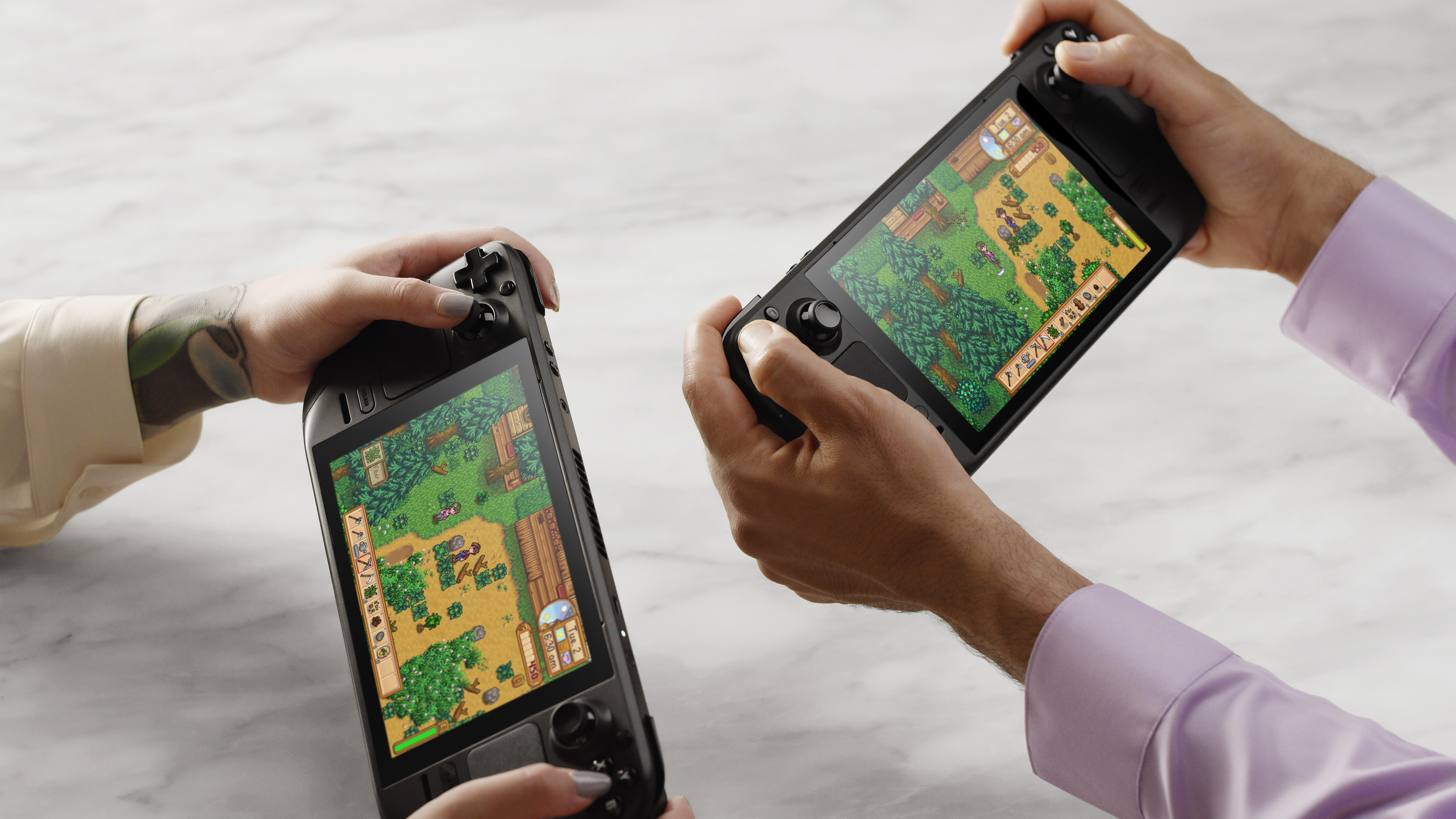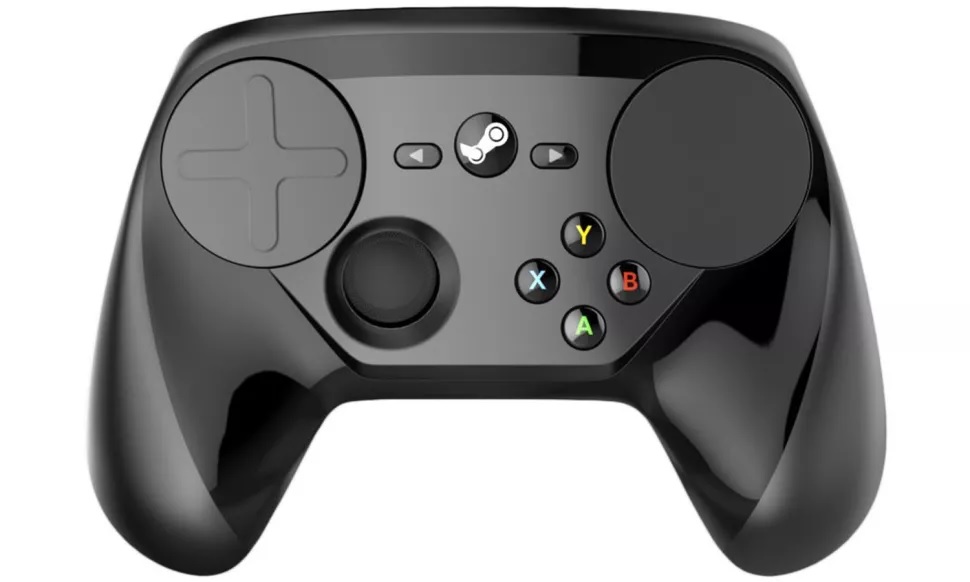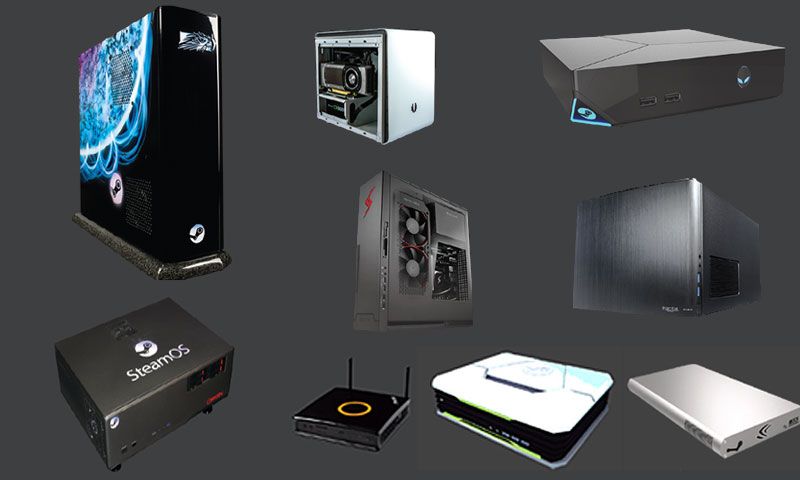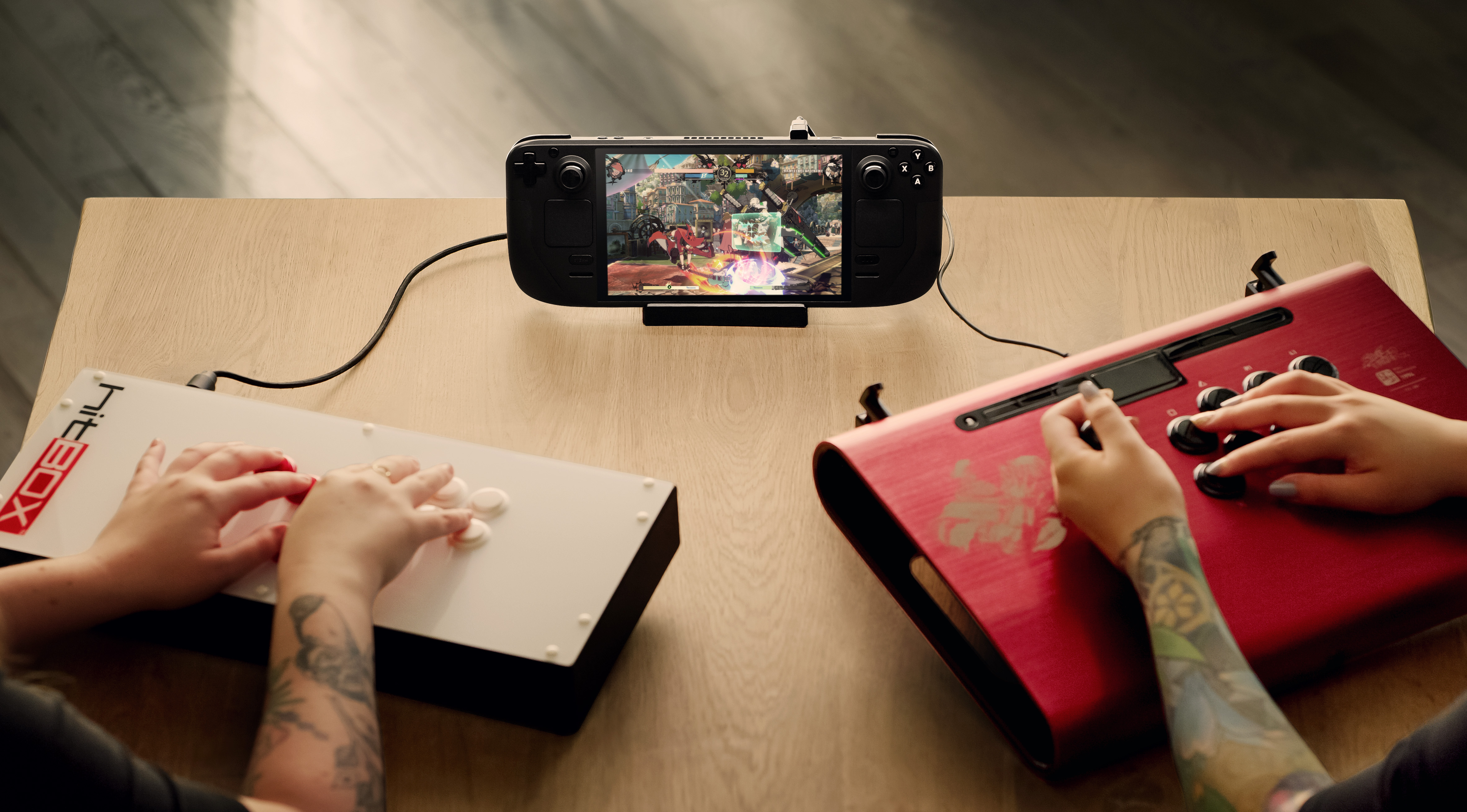Steam Deck looks great, but Valve’s hardware track record doesn’t
Steam Deck comes from a company with a mixed reputation for hardware

Here at Tom’s Guide our expert editors are committed to bringing you the best news, reviews and guides to help you stay informed and ahead of the curve!
You are now subscribed
Your newsletter sign-up was successful
Want to add more newsletters?

Daily (Mon-Sun)
Tom's Guide Daily
Sign up to get the latest updates on all of your favorite content! From cutting-edge tech news and the hottest streaming buzz to unbeatable deals on the best products and in-depth reviews, we’ve got you covered.

Weekly on Thursday
Tom's AI Guide
Be AI savvy with your weekly newsletter summing up all the biggest AI news you need to know. Plus, analysis from our AI editor and tips on how to use the latest AI tools!

Weekly on Friday
Tom's iGuide
Unlock the vast world of Apple news straight to your inbox. With coverage on everything from exciting product launches to essential software updates, this is your go-to source for the latest updates on all the best Apple content.

Weekly on Monday
Tom's Streaming Guide
Our weekly newsletter is expertly crafted to immerse you in the world of streaming. Stay updated on the latest releases and our top recommendations across your favorite streaming platforms.
Join the club
Get full access to premium articles, exclusive features and a growing list of member rewards.
Last week, Valve revealed Steam Deck: a handheld PC that looks like a NIntendo Switch, but packs as much power as a decent gaming laptop. Pre-orders for the Steam Deck went live on Friday (July 16), and hordes of eager fans nearly crashed Valve's servers. This December, PC gamers will have a chance to play their favorite titles in a handheld format — no cloud gaming, local streaming or compromised console ports required.
While Steam Deck sounds interesting, I've adopted a wait-and-see approach regarding Valve's inventive new device. Part of the reason is that I think there's still a pretty clear separation between games that are optimized for a handheld, and games that are optimized for a big screen, the Nintendo Switch notwithstanding.
- Play the best free PC games
- Steam Deck is an oddball gaming machine — and I love it
- Plus: How to check if a Steam game works on Steam Deck
The other reason for my caution, of course, is because I've observed Valve's approach to hardware over the past few years, and the company has stumbled just as often as it's succeeded. Since I've started working at Tom's Guide, Valve has attempted three major hardware initiatives: the Steam Controller, the Steam Link and Steam Machines. The first two came and went; the last one barely materialized at all.
While the road to success is paved with failure in the gaming industry as much as anywhere else, I still wonder whether Valve will deliver a revolutionary handheld console or abandon the Steam Deck project if it's not perfect out of the gate.
Steam Controller and Steam Link

For context, let's look at Valve's hardware initiatives up to this point, and how each one played out.
First, there was the Steam Controller, which debuted in 2015. I reviewed the inventive peripheral when it came out, giving it a mixed score:
"While the Steam Controller can adequately replace a traditional controller, a mouse and a keyboard all at the same time, it doesn't fill any of the functions of those devices particularly well," I wrote at the time. "The impromptu mouse pad feels imprecise; there aren't enough buttons to replace a full-fledged keyboard, and it seems to introduce a limitation to just about every genre that wasn't there before."
Get instant access to breaking news, the hottest reviews, great deals and helpful tips.
For those who never tried one, the Steam Controller was a large peripheral, intended to work with SteamOS, and to work in place of a traditional controller, mouse and keyboard all at once. It was an ambitious idea, and like many ambitious ideas, it didn't fully work. Still, the amount of customization it offered was incredible, and a small but dedicated community of fans still laments the demise of that product to this day.
The problem wasn't that the Steam Controller was imperfect; it was that Valve released it to middling fanfare, didn't do much with it, and quietly let it disappear. A second version could have ironed out a lot of issues present in the first.
Steam Link, which also came out in 2015, was another ahead-of-its-time step toward streaming PC games. By hooking this small box up to their TVs, gamers could stream their Steam libraries to a big screen, successfully bridging the gap between PC and living-room gaming. The device cost only $50 — much cheaper than buying a second gaming PC.
To be fair, Steam Link functionality still exists, as you can get it on Android phones or program it into a Raspberry Pi. But the Steam Link hardware was another perfect example of Valve producing a perfectly viable piece of tech, then seemingly losing interest in it and abandoning it, just when it could have been most useful. Think about how many cloud gaming headaches a full-featured Steam Link could have solved, years before Google Stadia or Xbox Cloud Gaming even existed.
Steam Machines

However, Valve's biggest hardware misstep came in the form of Steam Machines. This promising idea surfaced in 2014, when Valve announced that it would partner with a variety of gaming PC manufacturers to make its own line of gaming rigs. Each Steam machine would come preinstalled with SteamOS, and would run the gamut from top-of-the-line gaming PCs, to small-form living room fare.
Valve made a big to-do about Steam Machines before they launched, and got major manufacturers like Alienware and iBuyPower onboard to work their magic. However, as the Steam Machines' release dates grew nearer and nearer, Valve said less and less about the machines. In the end, very few Steam Machines actually came out, and almost no one bought them. Valve stopped discussing them entirely.
Between the Steam Controller, Steam Link, and Steam Machines, we can see a consistent pattern with Valve's hardware plans. The company announces an ambitious device; the device comes out; the device gets a mixed (or negative) reaction; Valve quietly lets the product die.
There's no guarantee that Steam Deck will follow suit, of course. But of Valve's previous efforts, Steam Deck is most similar to Steam Machines, right down to the SteamOS interface (and the possible Linux-related limitations that come along with it). Valve's previous foray into gaming computers ended poorly. If the company wants to single-handedly make handheld gaming PCs mainstream, Steam Deck will need to be a technical success, a critical darling, or a popular fan-favorite. So far, none of Valve's hardware has succeeded on more than one of those counts.
Steam Deck outlook

Then again, Steam Deck is still half-a-year away, and I don't have any special insight into how well it might work, or sell. If pre-orders are any indication, gamers seem much more excited about Steam Deck than the Controller or the Link. Furthermore, a handheld gaming PC is something people have been clamoring for; I don't know if I can say the same about a SteamOS-optimized controller.
For gamers who absolutely, positively must have a Steam Deck, I wish you good luck with the pre-order meshugas. However, waiting for reviews in this case might be the wiser move. Valve may very well have a hit on its hands — but many fans thought the same thing back in 2014.

Marshall Honorof was a senior editor for Tom's Guide, overseeing the site's coverage of gaming hardware and software. He comes from a science writing background, having studied paleomammalogy, biological anthropology, and the history of science and technology. After hours, you can find him practicing taekwondo or doing deep dives on classic sci-fi.
 Club Benefits
Club Benefits





